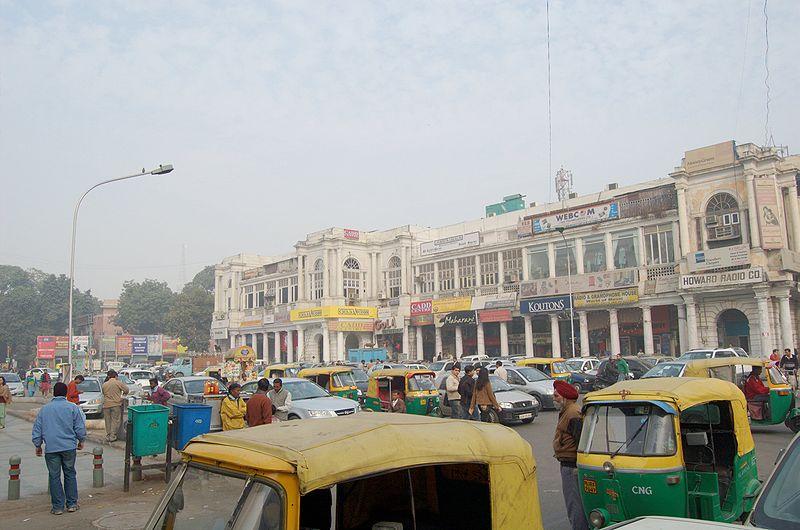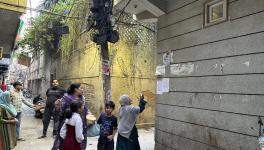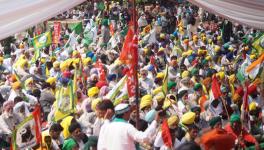Delhi Master Plan: People’s Collective Ensures Suggestions by Slum Residents, Informal Workers Submitted

Close to 40,000 comments were submitted to Delhi Development Authority (DDA) on its draft of the Delhi Master Plan-2041 on Thursday, as part of a campaign organised by a people’s collective. The submissions were made offline, mainly by city-based slum colony associations and informal workers’ groups – both representing those who are traditionally “left out of the planning process”.
Small delegations of these groups reached the DDA’s housing department office at INA’s Vikas Sadan on Thursday to ensure that the comments, collected over the last month, were received by the urban planning body. Some groups also staged a peaceful protest to raise the issues that they have been facing in the national capital, as videos that surfaced on social media showed.
The streamlining of suggestions was done under an initiative by the ‘Main Bhi Dilli’ campaign, a collective that aims to make planning in Delhi “more inclusive and participatory”. Formed in 2018, it is a coming together of researchers, urban planners, and workers’ groups, among others.
The draft of the Master Plan, a statutory document that has the power of law to govern urban development in Delhi, was made public by the DDA on July 6. Tasked with promoting and securing the development in the national capital, DDA is a body of the Union Government and comes under the administrative control of Ministry of Housing and Urban Affairs (MoHUA). The Lieutenant Governor of Delhi (LG) is the chairman of the DDA and exercises executive powers in the Authority.
Public comments on the draft plan, the national capital’s fourth since 1962, have been invited till August 23. The period was earlier extended by the DDA for another month, after the short window of 45 days for receiving feedback was flayed by the social activists.
Numerous community meetings were conducted over the last month in different areas of the city by the campaign volunteers. “The meetings were led by activists and community leaders who made people aware of the plan's provisions. After this, the demands and suggestions people had from the plan were collated by the campaign. The collective then assisted in composing letters and facilitating the submission at the DDA office,” Malavika Narayan, one among the campaign coordinators, told Newsclick on Friday.
Narayan, who works at Women in Informal Employment: Globalizing and Organizing (WIEGO) , a non-profit policy network, added that the among the 40,000 comments that the campaign was able to collect, most were from the associations of the different JJ (Jhuggi-Jhopdi) colonies in the city who felt that they had been left out from the Master Plan, and from street vendors, waste pickers, construction workers and domestic workers, among others.
“These different sections of informal workers in the city made comments based on the demands concerning their livelihoods. They are traditionally left out of the planning process, but not this time – at least to some extent,” she said.
In July, in a press conference called by the ‘Main Bhi Dilli’ campaign, researchers and social activist spoke on the primary demands that were to be raised through the outreach programmes. These included expansion of regularisation schemes for slum clusters, protection of places of work of informal workers, and enacting provisions to recognise the domestic workers and home-based workers, among others.
“The campaign was formed almost three years ago, around the same time when discussions over the Master Plan-2041 had begun. At the time, our aim was to start a public discussion on what kind of city the people of Delhi wanted and how to engage as many sections of them as we could in the planning process itself,” Rashee Mehra, another campaign coordinator, said.
She added the campaign arranged meetings, collected data and produced reports based on the views of the people. According to Mehra, the main challenge to achieve “wide participation in the planning process” was also the channel itself through which public comments were being accepted by the DDA.
“The preferred manner was online submission. As far as the physical mode is concerned, objections and suggestions to the Master Plan were only to be submitted at Vikas Sadan in INA, where too, only a single window with one person was tasked with accepting the suggestions,” Mehra, who works for Indian Institute for Human Settlements (IIHS), said.
The single desk for submissions is “highly inadequate”, even more so when the helpline numbers published by the DDA remain “ineffective,” the Main Bhi Dilli campaign said in a press statement earlier this month.
On future plans for the campaign, Mehra said: “We will continue to engage with citizens. We will also now wait for the final Master Plan and see if the comments were considered or not.”
Get the latest reports & analysis with people's perspective on Protests, movements & deep analytical videos, discussions of the current affairs in your Telegram app. Subscribe to NewsClick's Telegram channel & get Real-Time updates on stories, as they get published on our website.























